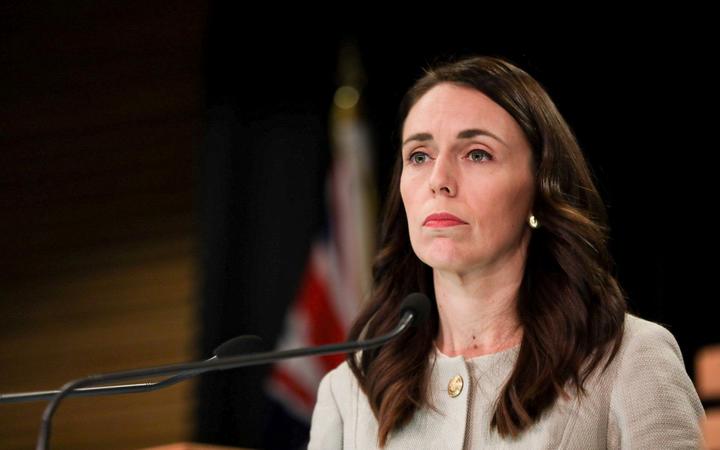On 4 January the British newspaper the Guardian published an insightful article by its health policy editor Denis Campbell: .
Campbell is an experienced journalist. He’s been writing for the Guardian and its sister weekly the Observer about the United Kingdom’s National Health Service (NHS), public health and medicine since 2007.
On this occasion his focus is on the devastating impact on the NHS of the highly transmissible omicron variant of Covid-19. To call it a crisis feels like an understatement.
Omicron is rampaging through the UK and causing massive destruction in the NHS, including out-of-control hospitalisations. The NHS’s dedicated workforce from general practitioners to ambulance drivers to health professionals in hospitals are overwhelmed as well as many being widely infected themselves.
The ultimate paragraph
But, as a good journalist should, Campbell goes further. Omicron’s devastation can’t be seen it isolation. The roots of this crisis that has been imposed on the NHS go back much further.
This is well summarised in the journalist’s following concluding paragraph:
Today’s immediate, escalating NHS crisis has long roots, which are also political roots. Years of decisions by David Cameron, Theresa May and Boris Johnson, especially their inaction on staffing, left it enfeebled and woefully underprepared for this level of extreme pressure, which the critical incidents and unavailability of ambulances dramatically illustrate. The service’s many supporters can only hope that it does not break altogether in the coming days.

Boris Johnson: A mix of callousness and incompetence
The roots of the crisis
Johnson’s leadership is characterised by a deadly combination of callousness and incompetence. But the roots of the crisis predate him. These long roots can best be described as woeful neglect of the NHS workforce.
Is there not something too familiar for comfort about woeful workforce neglect? Is this more than David, Theresa and Boris? In New Zealand, particularly since 2009, successive National and Labour led governments have also woefully neglected the health workforce employed by district health boards (DHBs) responsible for the provision of healthcare to geographical defined populations.
Health professional shortages are prevalent across the spectrum in all DHBs. They include medical specialists (nearly 25%), nurses and a large range of other allied professional groups such as psychologists, radiation therapists and physicists.
This is what Jacinda Ardern’s government inherited after the 2017 general election. Continuing the previous woeful neglect is how it responded. The only exception was nurses but this was limited. It only happened because of a successful collective bargaining campaign from their union, the New Zealand Nurses Organisation, which won the hearts and minds of the public. Further, although still early days, substantive improvement has yet to materialise.
Consequently both the United Kingdom and New Zealand respectively had excessively overworked and fatigued (many burnt out as well) NHS and DHB workforces when the coronavirus pandemic first arrived in early 2020. Both Johnson and Ardern inherited this situation but both continued the woeful neglect response.
Contrasting outcomes
The outcomes for both countries could not be more contrasting. The best indicator of the effectiveness or otherwise is the mortality rate per one million population. As of 6 January, for the world as a whole had 695 deaths per million. Compare this with 2,194 in the United Kingdom. Then compare both with New Zealand’s 10 per million.
The explanation is easy. New Zealand followed the science (mostly) with its zero tolerance elimination strategy. The UK government’s response was callous and incompetent implementation of the much less effective alternative mitigation strategy. It included ignoring or delaying actioning the advice of science. Indecisiveness is a generous description.

Jacinda Ardern: kind and followed the science
New Zealand’s public health measures were fit for purpose (public safety); the UK’s were fit for high mortality.
But along comes omicron
But New Zealand is still vulnerable with the arrival of the omicron variant. At the moment (touch wood) it is being held at the border. Our position is also helped by having one of the highest vaccination rates for adults and teenagers in the world.
But, unless the government significantly slows down the arrivals tap and strengthens protective border entry requirements, omicron will get into the community. It would make a big difference if the vaccine rollout for 5-11 year olds was well underway before this happens.
The omicron experience around the world including Australia, North America, the UK and Europe is horrific, not just the massive daily infections but also the huge influx of hospital admissions.
Owing to omicron’s high transmissibility (much higher than the highly transmissible delta variant), if or when it enters communities hospitalisations in Aotearoa will go through the roof. Vaccination rates and good public health measures should mitigate somewhat (the extent to which is unknown).
But it is difficult not to see our public hospitals and those who work in them being overwhelmed in terms of capacity and personal health. Labour’s continuation of National’s woeful neglect of this remarkable workforce will significantly worsen such a disaster.
Too much familiarity
The UK’s response to the pandemic was callous and incompetent. Its approach to its health workforce was unkind and uncompassionate. New Zealand’s response to the pandemic was kind and competent. But its approach to its health workforce was also unkind and uncompassionate.
What makes things worse is that both governments are intending to restructure their health systems in the midst of the pandemic. Now that really is shared lunacy. Too much familiarity for comfort indeed!
Ian Powell was Executive Director of the Association of Salaried Medical Specialists, the professional union representing senior doctors and dentists in New Zealand, for over 30 years, until December 2019. He is now a health systems, labour market, and political commentator living in the small river estuary community of Otaihanga (the place by the tide). First published at Otaihanga Second Opinion



Medical health spending is a black hole that money gets thrown into. No matter how much is poured in, there will still be insufficient funds. Take a look at the history of the UKs NHS system which was formed in 1949. Spending has increased both in real terms ever since its formation and for all but the last few years it has increased as a percentage of GDP
Why is this?
The available treatments in 1950 were fewer and less expensive than they are today. Medical research has spent the last 70 years developing a mass of exotic procedures and drugs that cost a fortune to implement, all of which become an automatic entitlement to the entire population under NHS rules.
Like most western nations, the UK is facing an obesity epidemic. 50 years ago a fattie would have been bluntly told to go home, diet and exercise but now they’re lined up for bariatric surgery and or panniculectomy. So the costs once again spiral out of control.
The UK population is steadily aging and the cost of health care for the aged is expensive. You could say that the NHS might even be a victim of its own success in that 30 years ago or more people mostly died inexpensive deaths soon after retirement due to lung cancer, heart failure or industrial diseases but now, thanks to the NHS most of us are living on into our 80’s and 90’s. The mere fact that we can do this is why Covid 19 has been so disruptive – the vast majority of hospitalizations and deaths have been among the old and deaths among the very old.
It’s a tough thing to say but there has to be medical care rationing to optimize our bang for bucks. Our current approach is unaffordable and the system will cave in on itself unless something is done. Just don’t ask me how to do that.
Well, here’s a first. I actually agree with Andrew. It has long been my fear that once we boomers lose our power we will be shat on because health care will be so expensive that life extension procedures will be progressively tightened.
Well, some boomers do not meet the age criteria – often only a matter of a few years, depending on the condition – and are being shat on. Told to go private. I’m not talking joints – here it is not a good thing to be under 65. Wait your turn.
Yes, Andrew is right. It all costs a bloody fortune. And not enough tax take to pay for it. IMHO would work better if the tax system didn’t give favours.
There is enough money, it’s just they don’t seem seem to spend it very well on health care for the public!
Health care funding is great to siphon off! The worse people put in charge.
In one of the most deprived areas of health care, Manakau DHB spend $17.5 million per year on conference centres as part of their health budget.
https://www.stuff.co.nz/national/health/93983848/counties-manukau-health-reviewing-its-175m-innovation-hub-cancels-events?rm=a
Why the Serious Fraud Office closed case against Waikato DHB boss Nigel Murray
https://www.nzherald.co.nz/nz/why-the-serious-fraud-office-closed-case-against-waikato-dhb-boss-nigel-murray/LGP62CXRU5EWPHKMXXWH7UWCPQ/?c_id=1&objectid=12255346
“Murray resigned in October 2017 following a DHB investigation that found expense claims associated with two Canadian women, neither of whom were his wife.
During his time in the $560,000 a year job Murray spent $218,000 on travel and accommodation to the United States, Canada, Australia and in New Zealand. In one year he spent a total of six months out of the office travelling.”
GUEST BLOG: Ian Powell – The luck and comings of Lester Levy: Part One
https://thedailyblog.co.nz/2021/08/21/guest-blog-ian-powell-the-luck-and-comings-of-lester-levy-part-one/
Can find the link but on of the DHB directors also seem to have spend the majority of budget which was millions of dollars on management consultants from his former firm, no sign of any help for patients or money spent on more doctors, nurses and medicene.
I would also like to point out that at the same time as the 17.5 million per year was being spent on Manakau DHB conference centres the children ward of the hospital had sewerage in the walls.
You really can’t understand how that type of budgeting can be allowed to happen.
Kiwi Kids in sewage wards while a fortune spent building conference centres!
Didn’t they learn from Sky City? Conference centres are a fraud! Pretty sure it was the Natz who have agreed both conference centres.
I have been reading an interesting book by Charles Kingsley The Roman and the Teuton where he expresses the opinion that the good public affairs of any society depend on individual morality. You can have the best constitution in the world but when individuals do not follow moral principles the society will decline.
I agree with Ian’s comments particularly working in the sector. Reading comments that include rationing funds to health, is akin to asking someone fasting to go on a diet. How do you ration funds to health when our population has expanded by 1 million in 10 years, yet funding has remained relatively the same. One Jonathan Coleman sent an edict to the countries DHB’s stating no extra funding, in turn, directives to staff were that we needed to “do more with less”. This led to burnout, stress and staff leaving in large numbers, numbers today reflect such a stance from governments underfunding/rationing funds.
In the real world, increasing a countries population should require an increase in funding to health proportional to growth. This simply has not happened. Is it any wonder the stress on our health professionals and infrastructure is what it is today? For those arguing if these people can’t handle it then why not leave? They are and in such numbers that the domino effect is leaving our countries health service in an appalling state.
Yes Bert and doing more with less was expected in almost all governments departments/agencies not just health, education suffered as did housing, ACC, biosecurity, postal services, power etc all under National.
And here is just one person’s story…
https://www.stuff.co.nz/national/health/127438315/it-was-chaos-nz-nurse-who-resigned-from-understaffed-blenheim-hospital
Some of us want the Booster but can’t get it because of the callous, mindless bureaucracy surrounding the 4 month rule. First New Zealand’s initial 2-jab vaccination programme was woefully behind the rest of the World, particularly if you made the ghastly mistake of not being born Maori. So most of us – including the highly vulnerable elderly with comorbidities – were forced to have our 2 jabs much later than we wanted. And now the 4 month rule forcing us to wait longer for our Booster, despite Delta slowly beginning to circulate.
In my case, I’m on chemo and therefore immunocompromised but can’t get a booster until my 4 months are up. Tried to get it yesterday but politely refused … against the rules. Just have to hope that when I head into Wellington Hospital for my Chemo infusion next week that Delta isn’t circulating in the hospital (which is more than possible given nearby businesses like Newtown Countdown were Places of Interest a week or so back). If I do pick it up there … I’ll be (1) friggin annoyed & quite possibly not long after (2) friggin dead.
Comments are closed.